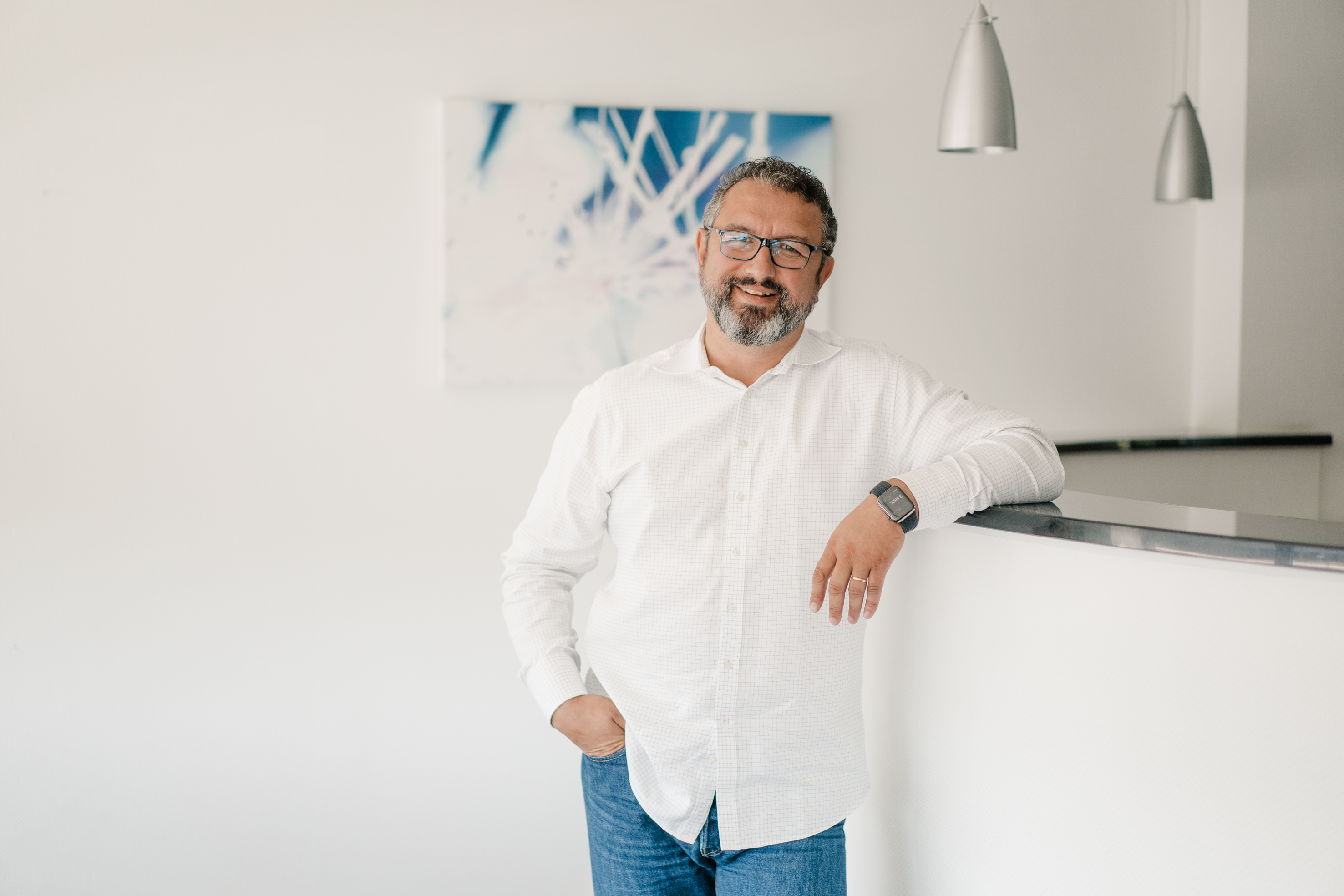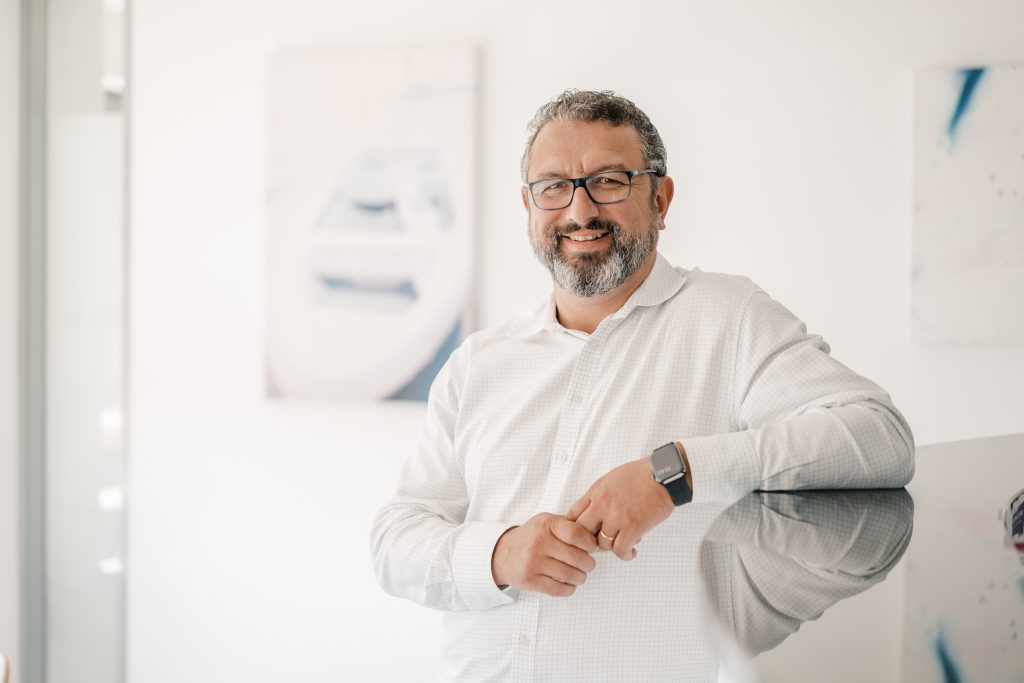“Running a company is all but being independent”

At 50 years-old, Christophe Bianco (EMBA.07) sold Excellium Services, a well known cybersecurity player he co-founded, to the defense group Thales. Established in Luxembourg since 1996, the French businessman just received a special prize from the HEC Mercure Awards jury for his entrepreneurial success. He shares more about his story.
When did you become an entrepreneur?
The last company I joined was preparing its stock exchange entry. I had been hired for that. On the day of the entry, my boss took 120 million, and I took 200,000 euros in stock options. I don’t want to diminish his job, but I thought there was a magnitude that was a little disturbing. Also on that day, he decided to fire me because he had heard that I wanted to leave the company. These two events made me wonder: « Why don’t I work for myself? » Taking the plunge is always a bit difficult, but it requires a trigger element, especially when you are getting older and start having a family, children and loans.
Excellium grew very quickly because we spent maybe a month or two really thinking about what we wanted to do. Success partly resides in the way we sold our idea, which had nothing extraordinary about it. But we had a reputation and have been quite aggressive execution-wise. As a result, we were able to accomplish our three-year business plan within eight months. We bought a bottle of champagne to celebrate the first million, but we realized we missed it and still haven’t drunk it when we reached the third or the fifth.
Private equity, criminology, economic intelligence… You have a successful business, but you keep pursuing higher education. Why?
I have a mental problem. My wife would say that I’m insane and my shrink that I am high potential [laughs]. But I need to understand. For example, when we started to raise funds, I saw in our first exchanges with financiers that we did not share the same vocabulary and could not understand each other. So I did a Master in Mergers and Acquisitions to understand the codes. And now I started a thesis on the relationship between investors and entrepreneurs because I’m interested in understanding the theory behind all of this. When I do nothing, I feel like I’m wasting my time.
“I’m a warrior in the start-up phase”
Has Excellium changed since Thalès completed its acquisition back in October 2022?
A group of 80,000 people acquired a company of 200 people, so yes, there was some change. We are a cutting edge activity, in which humans are central. The group Thales is a rather benevolent industrial group and gives a multitude of opportunities, whether it is for us founding members or for employees who can project themselves with much wider horizons. I think I’m a warrior in the start-up phase, not a warrior when you reach a certain level where you need people who are a little more process oriented, more analytical.
Thalès displays the ambition to become a European champion in cybersecurity. What kind of competitors are you facing worldwide?
There are numerous competitors on the market. World leaders are mostly of American origin. So Thales ambition is to claim their European identity while being present in the United States. And they just bought a cybersecurity company in Australia. So, its purpose is to be an important player on a world level because stakes are global today.
We have successfully brought together experts in this field and wanted to provide them with a nurturing environment that value their skills. We believed that the DNA of what we had created aligned well with an industrial player, especially a European one, in a world where sovereignty is increasingly emphasized.

Do your clients resort to your services only when a situation is critical? Or have we entered a “maintenance” era in cybersecurity?
There has been a significant evolution in cybersecurity in recent years. Historically, security measures were put in place to protect against potential problems that were seen as occasional occurrences. Occurrences that happened to others and were not easily materialized. However, today, for most actors, especially those heavily reliant on digital operations (essentially everyone), cybersecurity has become a matter of resilience. The question we commonly ask in our field is not: “Will we experience an attack?” but rather “When will we experience an attack?”.
The key challenge for our clients is to ensure that despite their pro-active efforts to mitigate the risk of an attack, they will be able to respond effectively when an incident does happen. Even though our clients consume various services related to prevention and preparedness, the ultimate challenge lies in having the capabilities to recover swiftly and return to normal production as quickly as possible in the event of an incident. The ability to effectively deploy the necessary resources and response measures during a crisis determines how well an organization can recover from a cybersecurity incident. The focus is on minimizing the impact of the incident, restoring operations, and ensuring business continuity.
“Being an entrepreneur is all but being independent”
What is your vision of entrepreneurship?
When I mentor entrepreneurs, they tell me that they want to be independent and be the decision-maker. But I would say that being an entrepreneur and then hiring people and running a company is all but being independent. You have as many bosses as employees who are waiting to get paid every month and expect you to solve the problems they have. Having a purpose and constantly challenging ourselves is what keeps us going, although it can be tiring.
Based on my experience, it means constantly looking for areas that need improvement in order to challenge ourselves and enhance the service we provide. It’s not about having the brightest idea, it’s about being excellent in execution and as resilient as possible while at the helm of an adventure. The hardest thing for an entrepreneur is being alone quite often. I had the chance to co-found the company, so there was two of us.
Published by Estel Plagué

